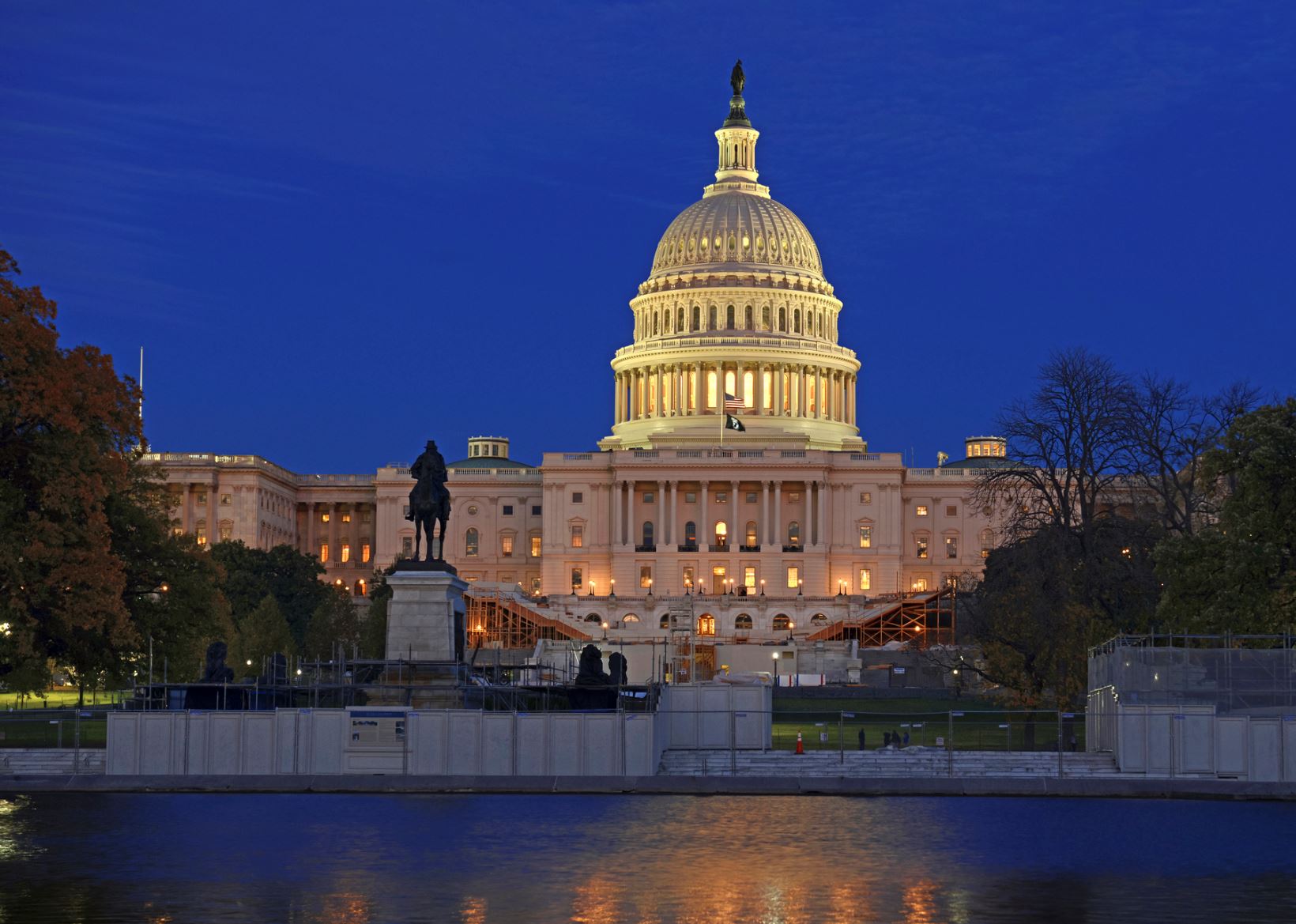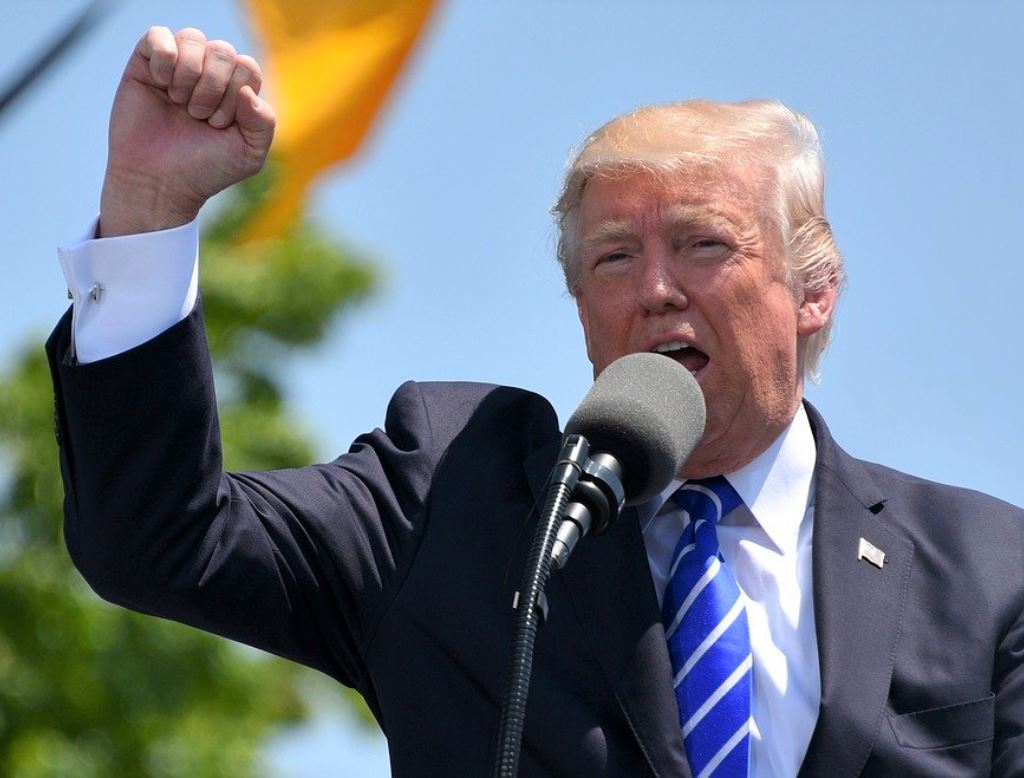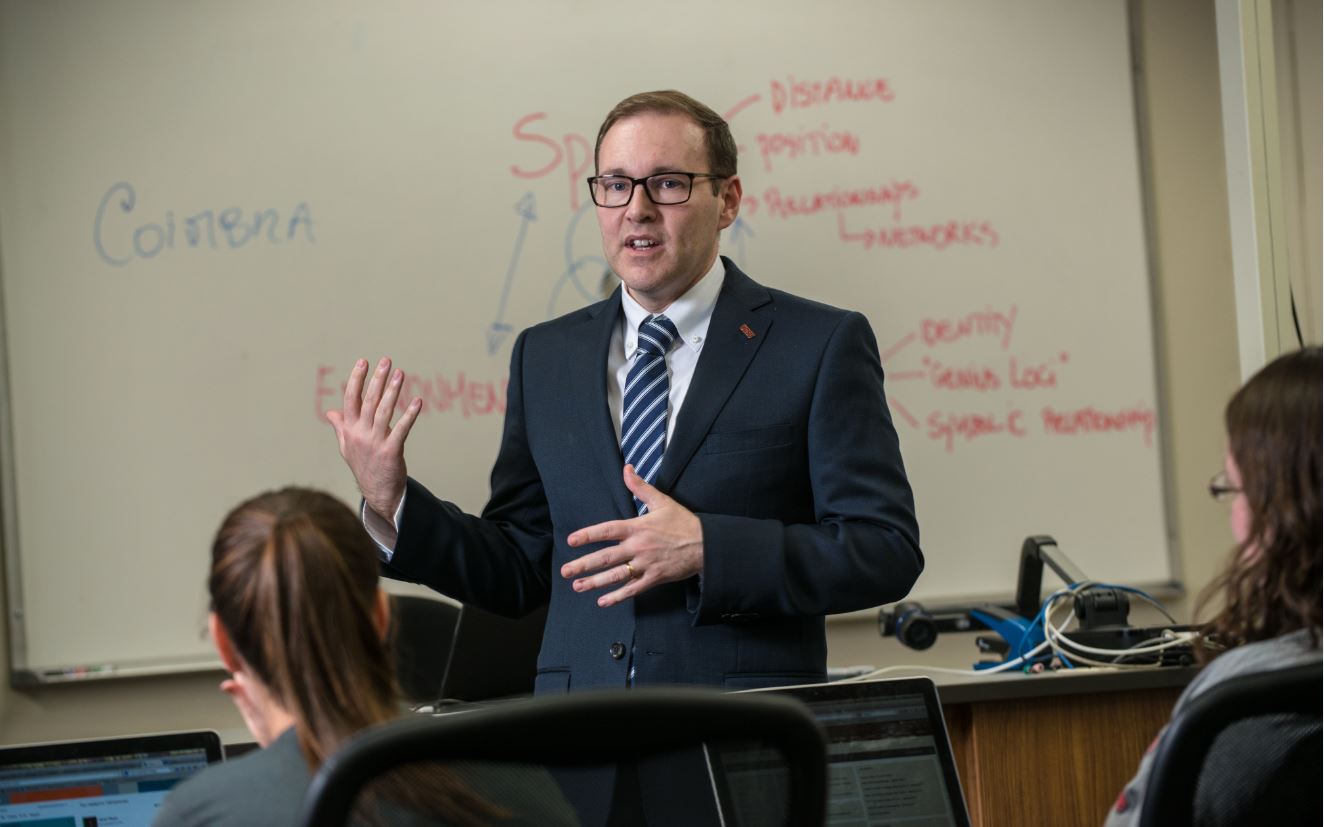
As the Democrats recover from the whirlwind surprises of the Iowa caucus, Donald Trump unhesitatingly threw down the gauntlet in his yearly State of the Union address, says Flinders international relations expert Dr Luis da Vinha.
Confident of an acquittal in the Senate impeachment proceedings – which virtually guarantees his nomination as the Republican candidate – and enjoying his highest job approval rating since taking office, Trump took advantage of his third State of the Union speech to drive home to his electorate, believers and possible converts, the key points of his re-election message, says Dr da Vinha, from the College of Business, Government and Law, after analysing yesterday’s State of the Union address in Washington DC.
Notwithstanding the platitudes and the inevitable made-for-TV moments of the speech, several themes emphasised by the President merit particular attention since they will most likely serve as the linchpin for his 2020 campaign, he says.
The first centres on the economy. Trump insisted his administration is responsible for America’s vibrant economic growth and decreasing unemployment rate.
Secondly, Trump claimed the US had (re)gained the respect of the international community. He touted the United States, Mexico and Canada Agreement (USMCA) and the recent agreement with China as evidence of a new round of international deals that strengthened America’s international standing by establishing principles of perceived fairness and reciprocity.
Thirdly, the President focused on his administration’s efforts to curb illegal immigration and attempts at securing America’s southern borders, promising to replace the existing immigration system with a merit-based scheme. This issue is closely linked to Trump’s broader focus on national security and his emphasis on fighting terrorism. The President also seized the moment to boast his administration’s success in physically eliminating the Islamic State’s Al‑Baghdadi’s and Iran’s Soleimani.

As surveys demonstrate, these themes are top priorities for Republican voters. However, true to his populist style, Trump also underscored several issues that are important to Democratic constituencies. For instance, the President highlighted the inclusivity of the economic growth experienced over the last three years, dubbing it a “blue collar boom”. He also touted the historic improvements in employment and income growth among African American and Hispanic communities.
More significantly, Trump referenced his administration’s efforts in approving criminal justice reform, lowering prescription drug costs, and securing paid family leave for federal employees, while promising to protect Medicare and Social Security and address education policy. These issues all resonate with Democrats and independents and were certainly included in the speech to give Trump’s agenda a broader electoral appeal for the upcoming presidential elections later this year – especially when one considers some of the more radical proposals espoused by some of the Democratic aspirants.
As the Democratic party continues its internal contest to select its presidential candidate, Trump is free to pursue his campaign unencumbered. In the US, incumbent presidents enjoy a host of electoral advantages over their opponents such as a unified party base, name recognition, and access to government resources.
Furthermore, over the past decades four of the five incumbent presidents successfully secured their re-election bids. Hence, the Democrats face a daunting task in finding a viable candidate in trying to counter Trump’s narrative and convince the American electorate that they deserve their vote. There are certainly many issues they can highlight to counter the President’s record: the ballooning deficit spending (and subsequent growth of US public debt), the growing income inequality, the heightened mood of racial tension, the unfettered and aggressive environmental deregulation, the debasing of the nation’s political institutions, and the forfeiture of the leadership of the international liberal order.
However, many of these issues are distant from everyday Americans’ minds and require a significant degree of abstract conceptualisation. Political science has long established that the electorate is far from rational, and that political ignorance easily finds its home there. As political scientists Christopher Achen and Larry Bartels clarify, during elections, the American public is “swayed by how they feel about ‘the nature of the times’, especially the current state of the economy, and by political loyalties typically acquired in childhood”.
In today’s hyper-polarised political environment, partisan biases will only further entrench many voters in their set beliefs. As a result, the Democratic nominee will encounter the spectre of insurmountable challenges in trying to overcome the president’s penchant for political hyperbole. However, any such endeavour is temporarily curtailed as the multiple Democratic contenders face-off against each other in an attempt to secure their party’s nomination. Meanwhile, Trump has begun to build his coalition in an attempt to secure his re-election. And time is on his side.

Dr Luis da Vinha is a Lecturer in International Relations at Flinders University. He has lived in the US and Europe for more than 20 years where he taught at Valley City State University (USA), the University of Coimbra (Portugal) and the Higher Institute of Educational Sciences (Portugal). Luis was also active in politics, namely as a party and publicly-elected official, and has widely published in political journals and books.

